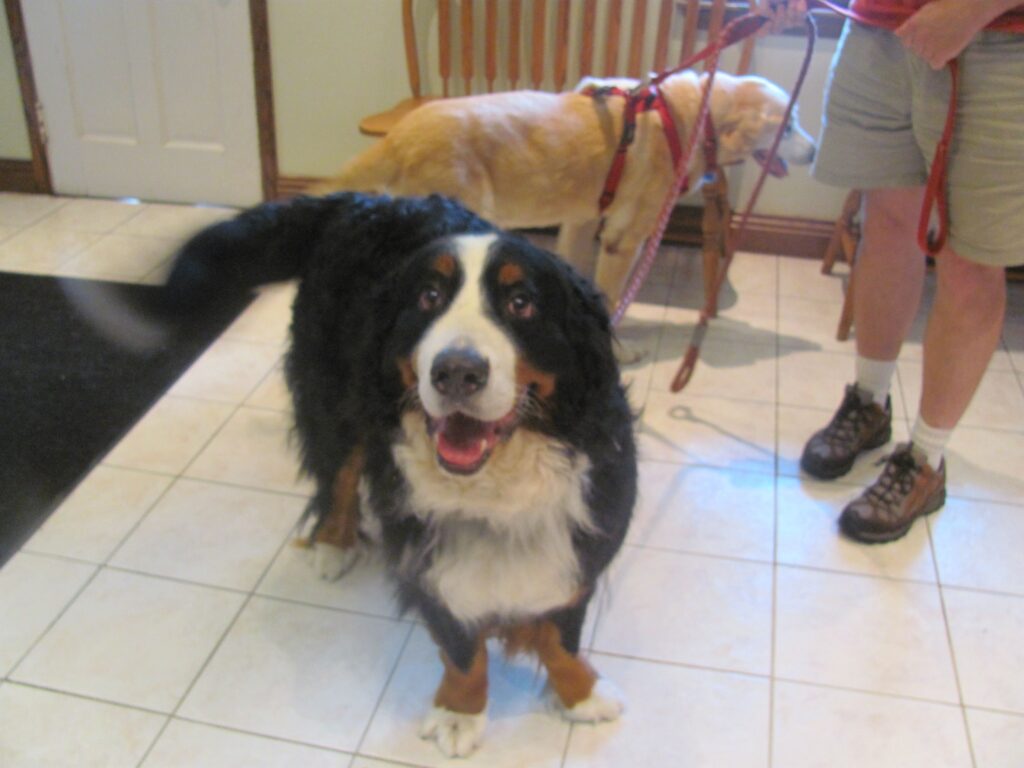By Doug Knueven, DVM, CVA, CVC, CVCH
Vitamin D is a critical nutrient. It acts as a hormone in the body and regulates calcium metabolism which is important in bone growth and maintenance. Vitamin D excess leads to too much calcium in the blood. This can cause calcification of body tissues and the formation of bladder stones. Overt Vitamin D deficiency causes Rickets (poor bone development) in the young and osteomalacia (softening of the bones) in adults. Subtly low Vitamin D can cause many other problems mentioned below.
Vitamin D is nicknamed “The Sunshine Vitamin” because the skin of our bodies can manufacture it with the help of sunlight. It is important to note however that dogs and cats do not have this ability. Pets must consume all the Vitamin D they need (and at the same time, not excessive amounts).
Many people do not get enough Vitamin D, probably due to our indoor lifestyles. A vast number of studies over the past three decades have linked Vitamin D deficiency to the development of many human diseases including autoimmune, infections, cardiovascular disorders, and, most especially, cancer. Even conventional human physicians have now realized the importance of this nutrient and are measuring blood levels and recommending supplementation as needed.
One problem with Vitamin D in dogs and cats is that the research in this area is just beginning. It was only a couple of years ago that a study established the desirable range of Vitamin D in the blood of pets to be 100-120 ng/ml. Some experts think we should be shooting a little higher (120-150 ng/ml). At the same time, it is certain that blood levels above 300 lead to toxicity.
Vitamin D appears to act as an anti-inflammatory agent. A recent study showed that low levels of Vitamin D cause an increase in inflammation in the body. Another study found that a low Vitamin D level is a risk factor for heart failure in dogs. Vitamin D protects the heart and helps it function better. Still another study found that the lower the level of vitamin D, the more severe the heart condition.
A very important study found a correlation between low Vitamin D and cancer in dogs. It further found that Vitamin D has a potent positive effect on the immune system. Researchers also found that Labradors with mast cell tumors had significantly lower Vitamin D levels than unaffected dogs. Furthermore, vitamin D metabolites were found to have anti-proliferative effects on the growth of canine mastocytoma cells. Multiple studies have shown that Vitamin D has anticancer effects on other canine cancer cell lines as well.
Two other studies found that dogs with low Vitamin D levels are prone to inflammatory bowel disease (IBD). Similarly, cats with either IBD or intestinal lymphoma were found to have low Vitamin D levels.
Concentrations of Vitamin D were found to be lower in dogs with acute or chronic renal failure compared to healthy control dogs. Another study found that, in dogs with allergies, the response to cortisone treatment was significantly better in animals with higher serum Vitamin D levels.
A study published in 2015 found that the level of Vitamin D in the blood of hospitalized cats predicted their likelihood to survive. The lower the blood level of Vitamin D, the higher the risk of death from any disease. A previous study found that cats with tooth resorption (a painful disease of cats that causes their teeth to dissolve at the gum line) have significantly higher serum concentrations of Vitamin D than do cats without this condition. It is important to be sure the balance is just right by having a blood test.
Because dogs and cats are unable to make Vitamin D in their skin, they depend on getting the right amount from their food. Unfortunately, many pet diets may be unbalanced when it comes to Vitamin D.
One recent study looked at the blood levels of Vitamin D in 320 dogs. Most of the dogs (292) were being fed processed dog food from 40 different manufacturers, 18 were on homemade diets, and 10 were on a combination of the two. The blood levels of vitamin D ranged from 9.5-249.2 ng/ml. (The 9.5 level was from a dog on a homemade diet).
Another study looked at cat food and found that 41% of canned cat foods have more than 30 times the Vitamin D requirement of cats (which could explain the dental problems mentioned earlier). A veterinary nutritionist I spoke to told me that in her research she found that the Vitamin D levels in feline diets range from 98 – 1,305 IU/1,000 Kcal. The AAFCO guidelines allow for levels of 125 – 2,500 IU/1,000 Kcal. Those are both quite wide ranges which makes me concerned about the reliability of pet foods regarding Vitamin D levels.
Yet, the importance of Vitamin D for pets is irrefutable. When you look at all the serious medical conditions (heart disease, IBD, kidney disease, cancer, etc.) that this nutrient affects, we need to be sure our animal companions are safe. The only way to know that your pet is getting the right amount of Vitamin D is to check her blood levels. If you want to be sure your pet has a reduced risk of inflammation, cancer, and other serious diseases, get this important test today. Then the appropriate amount of Vitamin D can be supplemented if needed.
Indy is and 8-year-old Bernese Mountain Dog who became very ill this past summer. In July, he was diagnosed with a very aggressive mast cell cancer that was attacking his spleen, liver, and lymph nodes. He had surgery to remove his cancerous spleen and upon recovery, developed aspiration pneumonia.
But, Indy and his caregivers are fighters. His conventional veterinarians got him started on chemotherapy. When Indy saw me for an integrative approach, I added herbal medicine, a natural diet, probiotics, and acupuncture to his treatment regimen.
As part of his holistic workup I checked his blood level of Vitamin D. Indy’s level was 64.4 which is much lower than the ideal range of 100-150. Whether this was a factor in the development of his cancer, we will never know, but he is now on supplementation and we are hoping for the best in his recovery.



